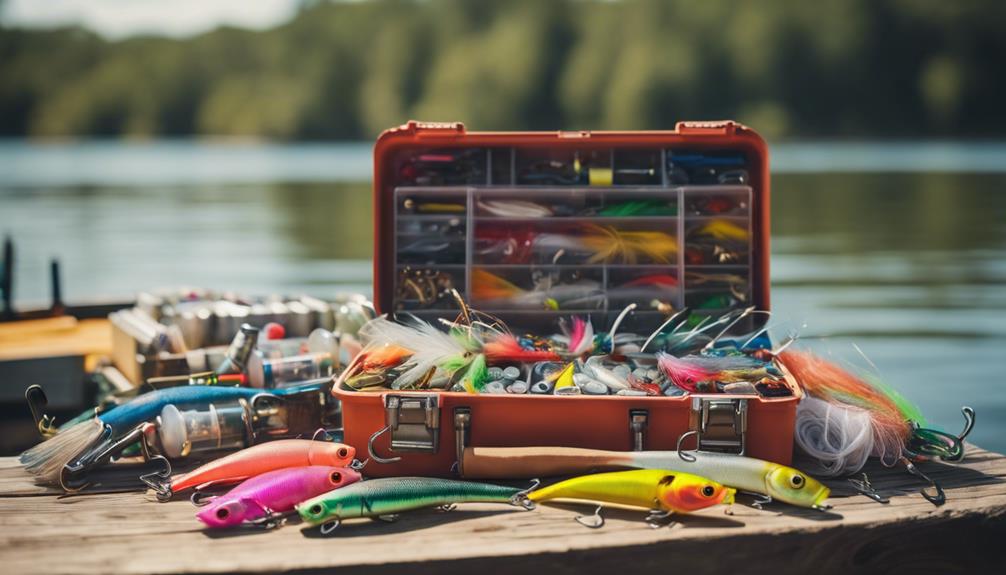Fishing is a popular pastime enjoyed by millions of people around the world. However, before you cast your line, it’s crucial to know the rules and regulations surrounding fishing licenses. If you’re wondering, “Do I have a fishing license?” this guide will provide you with all the information you need to ensure you are legally compliant and ready for a successful fishing trip.
What is a Fishing License?
A fishing license is a legal document issued by state or provincial authorities that allows individuals to fish in designated waters. The purpose of these licenses is to manage fish populations and ensure sustainable fishing practices. Fishing licenses also help fund conservation efforts, habitat restoration, and fishery management programs. Depending on where you live, the requirements for obtaining a fishing license can vary significantly, so it’s essential to understand the specific regulations in your area.
Do I Need a Fishing License?
Whether or not you need a fishing license depends on various factors, including your age, the type of fishing you’re doing, and the location. In most places, anyone over a certain age (usually 16 or 18) is required to have a fishing license. Additionally, some states offer exemptions for specific groups, such as active military personnel or individuals fishing in designated free fishing days. If you’re asking yourself, “Do I have a fishing license?” make sure to check your local fishing regulations to determine if you need one and what the age limits are.
How to Check If You Have a Fishing License
If you’re unsure whether you possess a fishing license, there are several ways to check. Many states and provinces offer online databases where you can enter your personal information to verify your license status. Alternatively, you can contact your local fish and wildlife agency directly. They can provide you with information regarding your fishing license, whether it’s active, expired, or if you need to apply for a new one. Keeping a record of your fishing license is essential, especially if you plan to fish in multiple locations.
How to Obtain a Fishing License
Getting a fishing license is a straightforward process. Most states allow you to apply online, in person, or via mail. To obtain a fishing license, you’ll typically need to provide some personal information, such as your name, address, date of birth, and sometimes your Social Security number. Additionally, there may be a fee associated with acquiring a fishing license, which can vary based on the type of license (resident, non-resident, or specialty licenses). Make sure to have your payment method ready, as many jurisdictions accept credit cards for online applications.
Types of Fishing Licenses
When obtaining a fishing license, it’s essential to know that various types of licenses cater to different fishing activities. Common types include freshwater licenses, saltwater licenses, and combination licenses that allow fishing in both environments. Some states also offer specialty licenses for specific species or fishing methods, such as fly fishing or ice fishing. Furthermore, temporary licenses for short-term visitors or tourists are often available. Understanding the different types of licenses will help you choose the right one based on your fishing plans.
Fishing License Regulations
Fishing regulations can vary widely from one state or province to another. These regulations cover not only the licensing requirements but also the rules governing the size and quantity of fish you can catch, the fishing seasons, and the types of gear you can use. Violating these regulations can result in hefty fines, so it’s crucial to familiarize yourself with the laws in the region where you plan to fish. Always check for updates or changes in regulations, as they may shift from year to year based on environmental conditions and fish populations.
Benefits of Having a Fishing License
Having a fishing license doesn’t just keep you compliant with the law; it also comes with several benefits. First and foremost, your license fees contribute to conservation efforts, supporting sustainable fish populations and preserving aquatic ecosystems for future generations. Additionally, many states offer exclusive perks for licensed anglers, such as access to special fishing areas, discounts on gear, and participation in fishing tournaments. Furthermore, possessing a fishing license enhances your credibility as a responsible angler, which can foster a greater sense of community among fellow fishermen.
Consequences of Fishing Without a License
Fishing without a valid license can lead to significant consequences. Authorities often conduct random checks, and if you’re caught fishing without a license, you may face fines, penalties, or even legal action. In some jurisdictions, repeat offenses can lead to increased fines or a ban from fishing altogether. To avoid these repercussions, always ensure that you have the proper licenses before heading out to fish. Remember, it’s not just about staying on the right side of the law; it’s also about respecting the environment and promoting sustainable fishing practices.
In conclusion, knowing whether you have a fishing license is crucial for any angler. By understanding the requirements, checking your status, and adhering to local regulations, you can enjoy your fishing experience while contributing to the conservation of our natural resources. So, before you grab your fishing gear and hit the water, take a moment to ask yourself, “Do I have a fishing license?” and ensure you are ready for a fantastic day on the water.
